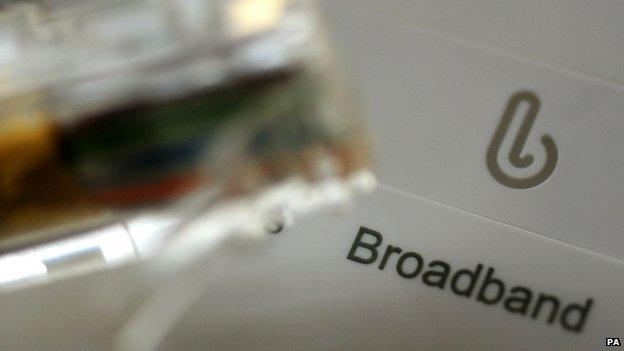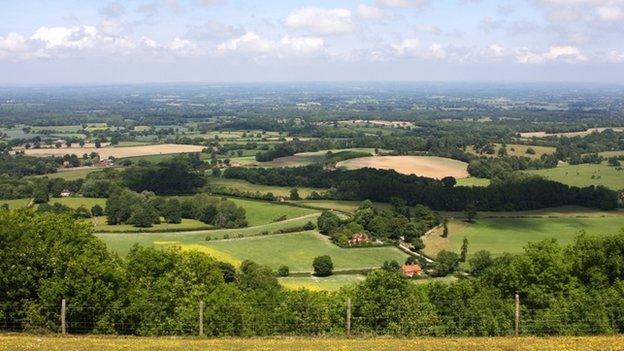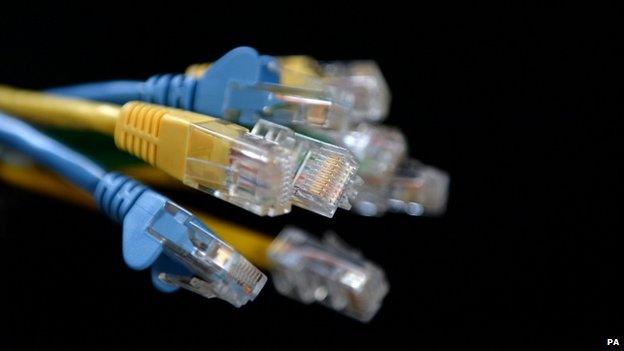BBC Click on some of the reasons your broadband is slow
- Published

Two streets, one in Wales and another in Essex, have been found to have the slowest broadband speeds in the UK, according to a new report.
Wheatley Road in Stanford-Le-Hope, Essex, and Erw Fawr in Henryd, north Wales, both had an average download speed of 0.60 megabits per second.
That is 30 times slower than the UK average, according to the research.
Spencer Kelly from BBC Click has spoken to Newsbeat to explain some of the reasons behind a slow connection.
Test your broadband speed with BBC iPlayer
"Your ISP (internet service provider) may have promised you a connection of "up" to a certain speed but there could be several reasons why you don't get that, or only get it some of the time," he says.
Where are you?

"Over short distances, old copper telephone wires can carry data at very high speeds," he says.
"But if you live too far from the exchange, or if there's a fault on the line, the connection gets very slow.
"ISPs are solving that by putting in fast optic fibre to the end of your street, and then using the older copper to carry it the last few metres.
"Rural areas are particularly prone to slow connections."
Too many users

"Just as you pay for a connection to your ISP, so your ISP pays for a connection to the internet backbone itself and it will have only paid for a certain amount of bandwidth," he says.
"That means if too many of its users all try to stream video at the same time, for example, it won't have a fat enough connection to cope, and everyone's speed will drop.
"It's like a motorway getting clogged with traffic at rush hour. This tends to happen in the evenings."
What are you doing?
"Some applications, for example filesharing, can use up a lot of your bandwidth for a long time, so some ISPs will actively choke your connection if it can tell that's what you're doing," he says.
And how much of it are you doing?
"In an attempt to control bandwidth hogs, ISPs will also slow your connection right down if you've used too much data in a month," he adds.
Follow @BBCNewsbeat, external and Spencer Kelly, external on Twitter